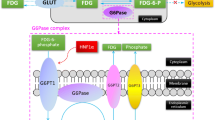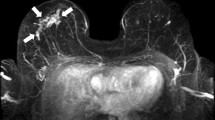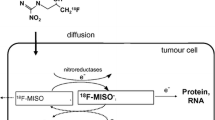Abstract
There are several reports that vouch for the usefulness of diffusion-weighted image (DWI) in making a diagnosis before treatment. However, no study has evaluated the effect of radiotherapy (RT) for unresectable gastric cancer. In the present case report, we evaluated the effectiveness of RT using DWI. An 81-year-old man was hospitalized with a broken bone and then diagnosed with advanced gastric cancer with breeding. He had chorionic renal failure and surgery was impossible. Further, contrast-enhanced computed tomography and magnetic resonance imaging (MRI) were not performed due to renal failure, whereas palliative RT was performed. We followed up the patient using blood test and MRI (DWI) to estimate whether bleeding had stopped or not after radiotherapy. Hemostasis effect was found after 2 weeks of RT. In DWI examination, there was a decrease in the tumor signal intensity 30 days after RT. Similarly, at day 60, the tumor signal intensity further decreased on DWI and the blood test results indicated no progression of anemia. At 4 months after the RT, the patient died because of respiratory failure without any bleeding. DWI is useful not only for the initial diagnosis but also for evaluating the effectiveness of RT.
Trial registration: National clinical study registered number: UMIN000026362.




Similar content being viewed by others
References
Digklia A, Wagner AD. Advanced gastric cancer: current treatment landscape and future perspectives. World J Gastroenterol. 2016;22:2403–14.
Cardoso R, Coburn N, Seevaratnam R, et al. A systematic review and meta-analysis of the utility of EUS for preoperative staging for gastric cancer. Gastric Cancer. 2012;15(Suppl 1):19–26.
Saito T, Kurokawa Y, Takiguchi S, et al. Accuracy of multidetector-row CT in diagnosing lymph node metastasis in patients with gastric cancer. Eur Radiol. 2015;25:368–74.
Joo I, Lee JM, Kim JH, et al. Prospective comparison of 3T MRI with diffusion-weighted imaging and MDCT for the preoperative TNM staging of gastric cancer. J Magn Reson Imaging. 2015;41:814–21.
Liu S, Wang H, Guan W, et al. Preoperative apparent diffusion coefficient value of gastric cancer by diffusion-weighted imaging: correlations with postoperative TNM staging. J Magn Reson Imaging. 2015;42:837–43.
Liu S, Zhang Y, Chen L, et al. Whole-lesion apparent diffusion coefficient histogram analysis: significance in T and N staging of gastric cancers. BMC Cancer. 2017;17:665.
Tanaka O, Matsuura K, Sugiyama A, et al. Hemostatic radiotherapy used twice for inoperable progressive gastric cancer with bleeding. J Gastrointest Cancer. 2017. https://doi.org/10.1007/s12029-017-9994-x.
Tanaka O, Yokoi R, Mukai T, et al. Radiotherapy for gastric bleeding from tumor invasion of recurrent colon cancer with liver metastasis after resection. J Gastrointest Cancer. 2017.
Tanaka O, Yamada M, Kato T, et al. Two sessions of radiotherapy were successful in treating gastric cancer with bleeding. J Gastrointest Cancer. 2018. https://doi.org/10.1007/s12029-018-0138-8.
Lee YH, Lee JW, Jang HS, et al. Palliative external beam radiotherapy for the treatment of tumor bleeding in inoperable advanced gastric cancer. BMC Cancer. 2017;17:541.
Suo ST, Chen XX, Fan Y, et al. Histogram analysis of apparent diffusion coefficient at 3.0 T in urinary bladder lesions: correlation with pathologic findings. Acad Radiol. 2014;21:1027–34.
Joye I, Deroose C, Vandecaveye V, et al. The role of diffusion-weighted MRI and 18F-FDG PET/CT in the prediction of pathologic complete response after radiochemotherapy for rectal cancer: a systematic review. Radiother Oncol. 2014;113:158–65.
Kato H, Kanematsu M, Tanaka O, et al. Head and neck squamous cell carcinoma: usefulness of diffusion-weighted MR imaging in the prediction of a neoadjuvant therapeutic effect. Eur Radiol. 2009;19:103–9.
Hori M, Matsuda T, Shibata A, et al. Cancer incidence and incidence rates in Japan in 2009: a study of 32 population-based cancer registries for the Monitoring of Cancer Incidence in Japan (MCIJ) project. Jpn J Clin Oncol. 2015;45:884–91.
Katanoda K, Hori M, Matsuda T, Nishimoto H, et al. An updated report on the trends in cancer incidence and mortality in Japan, 1958–2013. Jpn J Clin Oncol. 2015;45:390–401.
Funding
No financial support.
Author information
Authors and Affiliations
Corresponding author
Ethics declarations
Conflict of interest
Osamu Tanaka, Tatsushi Omatsu, Syuji Kariya, Ryoshu Maejima, Takuya Taniguchi, Kousei Ono, Yuka Kunishima and Masayuki Matsuo have no conflict of interest.
Human rights
We registered Institutional review board and national clinical trial UMIN.
Informed consent
Informed consent was obtained from the patient for being included in the study.
Rights and permissions
About this article
Cite this article
Tanaka, O., Omatsu, T., Kariya, S. et al. Usefulness of diffusion-weighted magnetic resonance imaging for evaluating the effect of hemostatic radiotherapy for unresectable gastric cancer. Clin J Gastroenterol 12, 269–273 (2019). https://doi.org/10.1007/s12328-018-0923-8
Received:
Accepted:
Published:
Issue Date:
DOI: https://doi.org/10.1007/s12328-018-0923-8




